Joint TTS-ISVCA Webinar Series on Composite Tissue

TTS Education Committee: Joint TTS-ISVCA Webinar Series on Composite Tissue
TITLE: Immunology of VCA
Tuesday, May 26, 2020 10:00AM EDT (Montreal time)
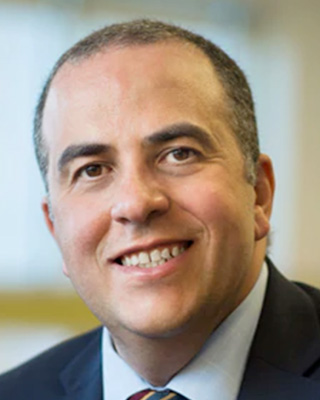 |
Moderator: Hatem Amer, MD Medical Director, Essam and Dalal Obaid Center for Reconstructive Transplant Surgery Mayo Clinic, Rochester, MN, USA |
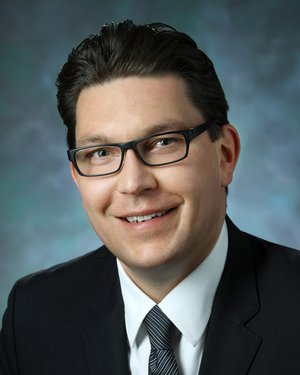 |
Discussant: Gerald Brandacher, MD Professor Vice Chair of Research Director, Interdisciplinary Research and Innovation for the Surgical Sciences Scientific Director, Reconstructive Transplantation Program Director, Vascularized Composite Allotransplantation (VCA) Laboratory Department of Plastic and Reconstructive Surgery Johns Hopkins University School of Medicine Baltimore, MD, USA |
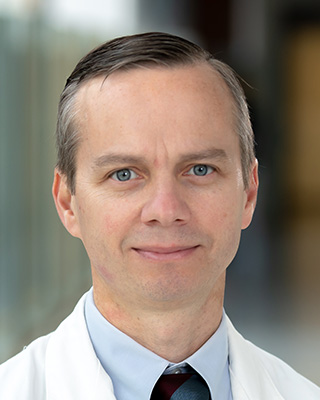 |
Discussant: Rolf N. Barth, MD |
Click here to view the recording (you must be logged into the website)
Objectives:
To provide an overview on similarities and differences identified in VCA vs solid organ transplants.
A presentation of recent data from preclinical models characterizing cell populations that may protect grafts from strong immune responses directed towards skin containing VCA allografts.
Gerald Brandacher's Biography:
Dr. Gerald Brandacher is scientific director of the Johns Hopkins Reconstructive Transplantation program and vice chair of research in the Department of Plastic and Reconstructive Surgery. He is also a professor in the Departments of Surgery and Plastic and Reconstructive Surgery at Johns Hopkins University School of Medicine and serves as the director of interdisciplinary research and innovation for the surgical sciences at Johns Hopkins.
Prior to joining Johns Hopkins in 2010, Dr. Brandacher was a key member of the hand transplant programs in Innsbruck, Austria and at the University of Pittsburgh. As scientific director of the program at UPMC he was instrumental in designing a novel cell-based immunomodulatory treatment protocol for VCA and was also part of the team performing the first bilateral hand transplant and first forearm transplant in the US. In 2018 Dr. Brandacher was a core member of the team executing the world’s first total male genital transplant. His main scientific interests are donor-specific immune tolerance and immunomonitoring strategies.
Dr. Brandacher has served as the President of the Austrian Society of Surgical Research (2008-2009) and as Chair of the American Society of Transplantation (AST) Vascular Composite Allotransplantation Advisory Council (2014-15). He was elected as Chair of the Vascularized Composite Allotransplantation Section of the European Society of Organ Transplantation (ESOT) in 2015, and is a Founding Member of the American Society of Reconstructive Transplantation (ASRT), for which he currently serves as the President. He has been a Member at Large to the OPTN/UNOS Vascularized Composite Allograft Transplantation (VCA) Committee. In 2015 Dr. Brandacher was selected as a “Fellow of the American Society of Transplantation”.
Rolf N. Barth's Biography:
Dr. Rolf Barth is an professor of surgery at the University of Maryland School of Medicine, the head of the Division of Transplantation and the director of liver transplantation at UM Medical Center. His clinical practice focuses on kidney, pancreas, and liver transplantation. Dr. Barth received his medical degree and surgical training at Duke University and continued specialty training in transplant surgery at University of Wisconsin-Madison. Dr. Barth also performed post-doctoral training in transplant immunology at Massachusetts General Hospital/Harvard Medical School. Dr. Barth has active clinical and basic research interests that include novel immunosuppressive therapies, immunologic tolerance, and the use of genetically engineered animal organs for human transplantation (xenotransplantation). Dr. Barth has an active lab investigating transplant tolerance and pre-clinical models of composite facial and limb transplantation towards the clinical goal of reconstructive transplantation. These efforts were part of one of the most-extensive face transplant performed worldwide to date.
TTS Education Committee: Joint TTS-ISVCA Webinar Series on Composite Tissue
TITLE: Ethical Framework for VCA
Friday, December 6, 2019 2:00PM EST (Montreal time)
 |
Editor: Hatem Amer, MD Medical Director, Essam and Dalal Obaid Center for Reconstructive Transplant Surgery Mayo Clinic, Rochester, MN, USA |
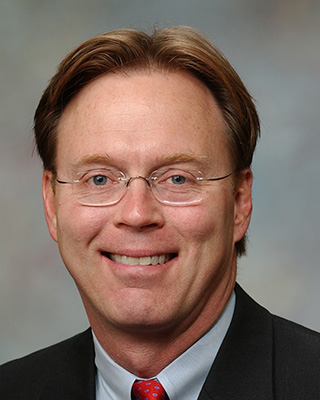 |
Moderator: Kevin Reid, DMD, MS, MA Medical Director, Office of Clinical Ethics Chair, Transplant Ethics Advisory Board Mayo Clinic Rochester, MN, USA |
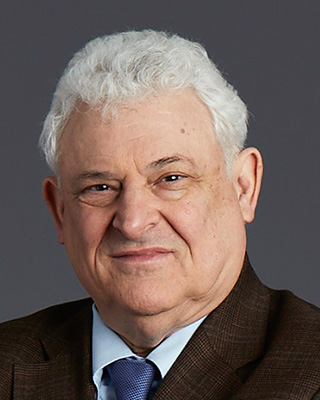 |
Discussant: Arthur Leonard Caplan, PhD |
Click here to view the recording (you must be logged into the website)
Objectives:
Articulate the ethical questions in VCA, Describe the differences in the ethical challenges between VCA and Solid Organ Transplants and enumerate possible solutions.
Kevin Reid's Biography:
Kevin Reid, DMD, MS, MA is the Chair of the Transplant Ethics Advisory Board and the Medical Director of Clinical Ethics at Mayo Clinic Rochester. Dr. Reid is embedded in the Transplant Medicine Center where he provides ethical analyses regarding morally-challenging issues related to Transplant Medicine. Dr. Reid holds a graduate degree in Medical Ethics from the Medical College of Wisconsin. In addition to his role in Transplant Medicine Ethics, Dr. Reid diagnoses and manages chronic orofacial pain. His research focus is on ethical issues related to the diagnosis and management of chronic pain. Dr. Reid has been on staff at Mayo Clinic Rochester for 23 years. He previously served as the Chair of the Department of Dental Specialties and has held numerous other roles, both within the department and external to the department of Dental Specialties.
Arthur Leonard Caplan's Biography:
Prior to coming to NYU School of Medicine, Dr. Caplan was the Sidney D. Caplan Professor of Bioethics at the University of Pennsylvania Perelman School of Medicine in Philadelphia, where he created the Center for Bioethics and the Department of Medical Ethics. Caplan has also taught at the University of Minnesota, where he founded the Center for Biomedical Ethics, the University of Pittsburgh, and Columbia University. He received his PhD from Columbia University.
Dr. Caplan is the author or editor of thirty-five books and over 750 papers in peer reviewed journals. His most recent books are The Ethics of Sport, (Oxford University Press, 2016 with Brendan Parent), Vaccination Ethics and Policy, (MIT Press, 2017 with Jason Schwartz) and Getting to Good: Research Integrity in Biomedicine Springer, 2018 with Barbara Redman).
He has served on a number of national and international committees including as the chair of the National Cancer Institute Biobanking Ethics Working Group, chair of the Advisory Committee to the United Nations on Human Cloning; chair of the Advisory Committee to the Department of Health and Human Services on Blood Safety and Availability. He has also served on the Presidential Advisory Committee on Gulf War Illnesses, the special advisory committee to the International Olympic Committee on genetics and gene therapy, the Special Advisory Panel to the National Institutes of Mental Health on Human Experimentation on Vulnerable Subjects, the Wellcome Trust Advisory Panel on Research in Humanitarian Crises, and the co-director of the Joint Council of Europe/United Nations Study on Trafficking in Organs and Body Parts. He is the co-founder and a board member of the ge2p2 global foundation. The Foundation has a special focus on bioethical and policy issues involving clinical development of and access to medicines, especially in low resource and humanitarian contexts.
Caplan has served since 2015 as the chairperson of the Compassionate Use Advisory Committee (CompAC), an independent group of internationally recognized medical experts, bioethicists and patient representatives which advises Johnson & Johnson’s Janssen Pharmaceuticals about requests for compassionate use of some of its investigational medicines.
Dr. Caplan is a regular commentator on bioethics and health care issues for WebMD/Medscape, for WGBH radio in Boston. He appears frequently as a guest and commentator on various other national and international media outlets.
Dr. Caplan is the recipient of many awards and honors including the McGovern Medal of the American Medical Writers Association and the Franklin Award from the City of Philadelphia. He was a USA Today 2001 “Person of the Year and was described as one of the ten most influential people in science by Discover magazine in 2008. He has also been honored as one of the fifty most influential people in American health care by Modern Health Care magazine, one of the ten most influential people in America in biotechnology by the National Journal, one of the ten most influential people in the ethics of biotechnology by the editors of Nature Biotechnology, and one of the 100 most influential people in biotechnology by Scientific American magazine. He received the Patricia Price Browne Prize in Biomedical Ethics for 2011. In 2014 he was selected to receive the Public Service Award from the National Science Foundation/National Science Board, which honors individuals and groups that have made substantial contributions to increasing public understanding of science and engineering in the United States. In 2016 the National Organization for Rare Disorders (NORD) honored him with their Rare Impact Award. He also received the FDA/Reagen-Udall Foundation Innovation Award for 2019.
He holds seven honorary degrees from colleges and medical schools.
TTS Education Committee: Joint TTS-ISVCA Webinar Series on Composite Tissue
TITLE: Psychosocial Aspects of VCA
Wednesday, October 23, 2019 - 10:00 AM EDT (Montreal time)
 |
Editor: Hatem Amer, MD Medical Director, Essam and Dalal Obaid Center for Reconstructive Transplant Surgery Mayo Clinic, Rochester, MN, USA |
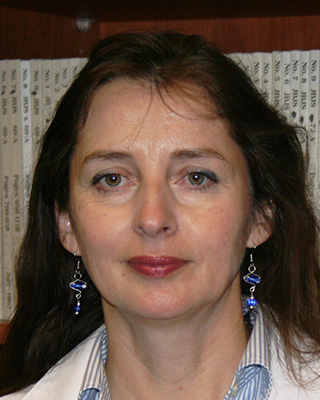 |
Moderator: Christina Kaufman, PhD Executive Director Christine M. Kleinert Institute Lousville, KY, USA |
 |
Discussant: Sheila Jowsey Gregoire, MD Associate Professor of Psychiatry Mayo Clinic Rochester, MN, USA |
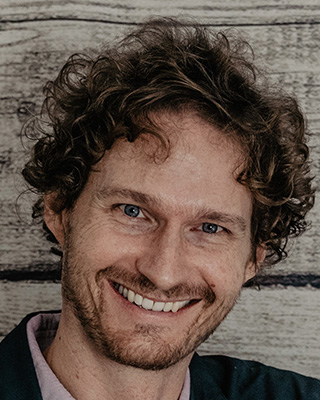 |
Discussant: Martin Kumnig, PhD, MSc |
Click here to view the recording (you must be logged into the website)
Objectives:
This webinar will highlight the psychosocial challenges that potential recipients face and the importance of the evaluation and support on outcomes of VCA.
Sheila Jowsey Gregoire's Biography:
Dr. Jowsey-Gregoire completed her psychiatry residency and consultation-liaison fellowship at the Mayo Clinic. She is co-chair of the Division of Professionalism and an associate Professor of Psychiatry. Her career focus is in transplantation and she established the Mayo Clinic Transplant Psychiatry program in 1999, serves on the Mayo Clinic Transplant Executive and Clinical Practice Committees and has a joint appointment in the Department of Surgery. She is the psychiatry director of the Mayo Clinic Vascularized Composite Allotransplantation (VCA) program and is on the United Network of Organ Sharing VCA committee which sets policy nationwide for the care of hand, face and uterine transplant candidates. She is a founding member of the Chauvet Workshop, an international organization that promotes the psychosocial care of VCA patients and is the principal investigator for a Dept. of Defense funded study in reconstructive transplantation. She is active in the American Society of Transplantation (AST) and a member of the AST Education committee and past chair of the AST Psychosocial Community of Practice. She has received NIH funding on outcomes in kidney donors and her research has been published in the American Journal of Transplantation as well as a number of other transplant journals. She co-led writing groups of the AST and International Society of Heart and Lung Transplantation on guidelines for the psychosocial evaluation of kidney donors and heart transplant patients. She is a member of the Transplant Center Diversity and Inclusion Committee which focuses on promoting the needs of patients and staff.
Martin Kumnig's Biography:
Dr. Martin Kumnig is the head of Center for Advanced Psychology in Plastic and Transplant Surgery at the Medical University of Innsbruck. He is an Associated Professor of Clinical Psychology in the Department of Medical Psychology. He received his PhD at the Alpen-Adria-University Klagenfurt and the Leopold-Franzens-University of Innsbruck. Dr. Kumnig received his venia docendi in Clinical Psychology 2015 at the Medical University of Innsbruck. He developed several psychological evaluation and follow-up protocols for different clinical questions. Dr. Kumnig is teaching at the Medical University of Innsbruck, the Leopold-Franzens-University of Innsbruck, the Management Center Innsbruck, and the Austrian Academy of Psychology. Dr. Kumnig is one of the leading experts on psychosocial aspects in VCA and he was one of the first to show how important the development of standardized psychosocial protocols and a VCA specific quality of life tool would be. He provided evidence that psychosocial outcomes have an essential impact on overall transplant outcome for patients that underwent VCA. This body of work has formed the framework of an international multicenter research collaboration.
Dr. Kumnig currently serves as member of the Reconstructive Transplantation Innsbruck (RTi) Team at the Medical University of Innsbruck. He was responsible for the development of the Innsbruck Psychological Screening Program for Reconstructive Transplantation (iRT-PSP) that was the first published standardized psychosocial evaluation and follow-up protocol in the field of VCA. Dr. Kumnig also works as clinical consultant for different VCA centers worldwide, particularly addressing psychosocial issues in modern transplantation medicine. Dr. Kumnig is a founding member of the Chauvet Research Group and associated Workshop, an international interdisciplinary organization that promotes the psychosocial care of VCA patients. Additionally, Dr. Kumnig is a member of the Ethical Legal and Psychosocial Aspects of Organ Transplantation (ELPAT) of the European Society of Organ Transplantation (ESOT). Dr. Kumnig is also an elected member of the board of advisors of the Young Scientific Investigators at the Medical University of Innsbruck. He is also a member of the European Association of Psychosomatic Medicine (EAPM). For his work on psychosocial protocol development, Dr. Kumnig received the Dr. Otto Seibert Award for Research on Encouragement of Socially Disadvantaged. He received funding on psychosocial outcomes research and protocol development in transplantation medicine and his research has been published in a number of transplant journals. Dr. Kumnig is currently working on research protocols on the development of psychosocial healthcare guidelines for VCA patients and patients with prosthetic case by using health technology assessment. Other current research interests include the computerized monitoring of adherence and HRQOL in immunosuppressed patients after transplantation and the pre-transplant psychological assessment and concomitant psychological counseling of candidates and donors for living kidney donation.
Christina Kaufman's Biography:
Dr. Christina L. Kaufman is the Executive Director of the Christine M. Kleinert Institute for Hand and Microsurgery (CMKI). She is an Associate Professor in the Division of Hand Surgery at the University of Louisville. She received her PhD from the University of Pittsburgh, under the mentorship of Rene Duquesnoy and Adriana Zeevi. Dr. Kaufman worked on transplantation tolerance protocols in experimental and clinical models at the Institute for Cellular Therapeutics where she was the Associate Director of Clinical Trials and the Director of the Flow Cytometry and Imaging Laboratory. She also worked on clinical and experimental models of autoimmune disease and type I diabetes. In addition to her experience with the conduct and administration of Phase I and Phase II clinical trials, she is the PI of several grants through the Department of Defense and several foundations. In addition, she is the Assistant Program Director for the ACGME accredited CMKI/U of L Hand Surgery program. Dr. Kaufman currently serves as the Secretary of the Board for the American Society of Reconstructive Transplantation, and is active in several other societies such as the American Society for Surgery of the Hand, the American Society of Transplantation and the International Society of Vascularized Composite Allotransplantation. She also serves as an Associate Editor for the journal Transplantation, and is a section editor for Current Opinions in Organ Transplantation.
Dr. Kaufman has implemented a research study using very high resolution Ultrasound Biomicroscopy to image graft vasculopathy in hand transplant patients as well as conventional hand patients. Other current research interests include the use of adipose derived stromal vascular cells in clinical and experimental trials of immunomodulation, definition of chronic rejection in VCA (Vascularized Composite Allotransplantation) recipients, and a trial of transcranial direct current stimulation (tDCS) in transplant, replant and nerve repair patients in collaboration with Dr. Scott Frey of the University of Missouri. In addition, she directs the day to day operation and administrative and regulatory oversight of the clinical hand transplant trial in progress in the Louisville VCA program.
Contact
Address
International Society of Vascularized Composite Allotransplantation
c/o The Transplantation Society
740 Notre-Dame Ouest
Suite 1245
Montréal, QC, H3C 3X6
Canada


